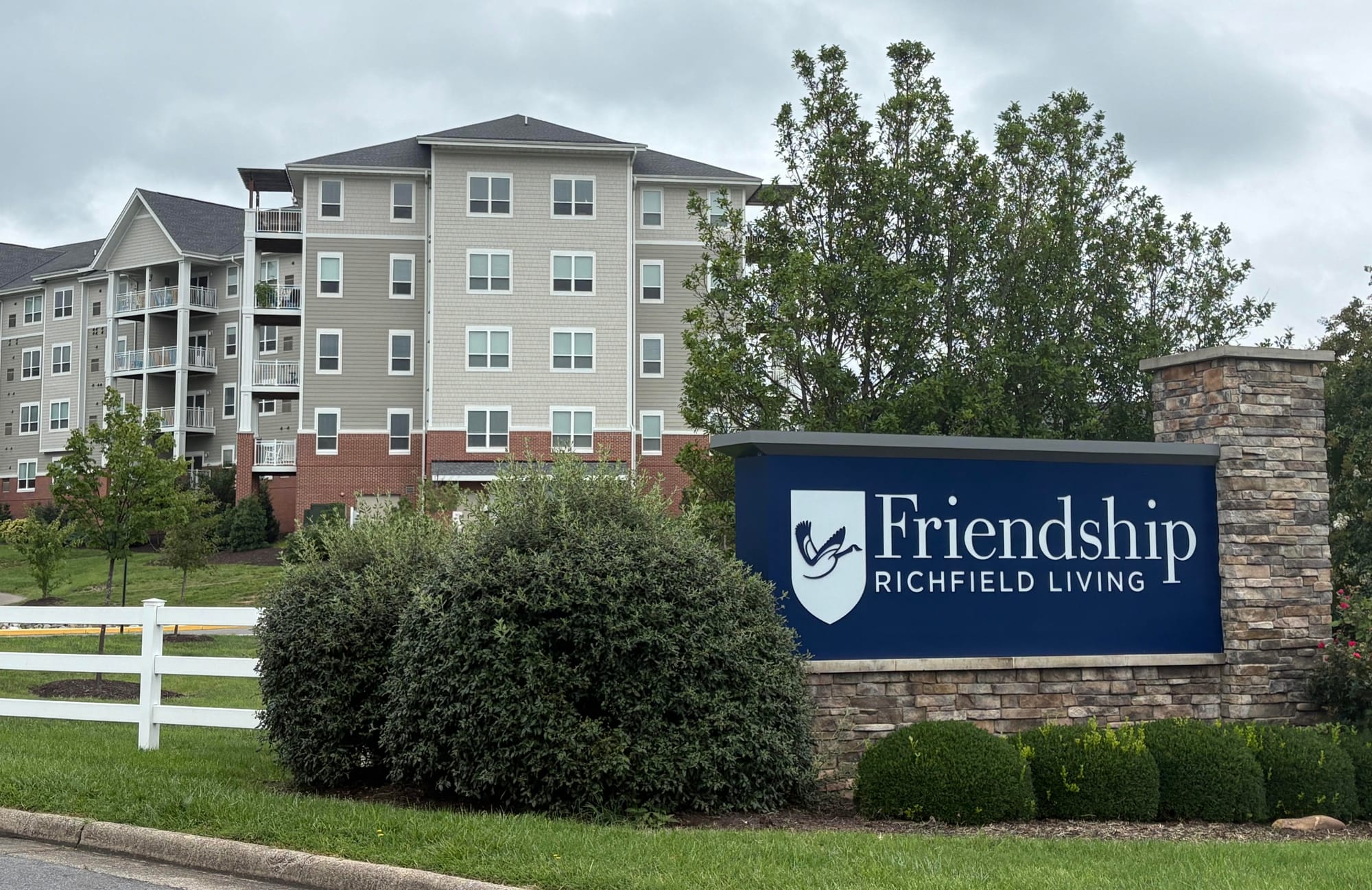Roanoke County Tried to Axe Retirement Home's Tax Exemption. A Judge Said No.
The county promptly asked the judge to reconsider the decision involving Friendship Retirement.

A judge sided with a nonprofit retirement home company over an attempt by Roanoke County to strip its tax exemption.
And the county promptly took the uncommon step of asking Judge Charles Dorsey to reconsider his decision, with a hearing set for Aug. 21.
Friendship Retirement successfully argued that its exemption transferred when it purchased the already tax-exempt Richfield Living property in the county. (Richfield paid an annual county service charge of 20% of the taxes that would have been owed.)
Dorsey ruled in favor of Friendship via a June 18 letter. Friendship’s 501(c)(3) nonprofit status is used interchangeably in state code with a “tax exempt organization,” Dorsey wrote in dismissing the county’s claim. Friendship is asking the county to refund more than $600,000 in 2024 taxes the company paid prior to the litigation.
State code section 58.1-3601 is at the crux of the case. It reads: “Any property exempt from taxation pursuant to this chapter which is subsequently sold to a person not having tax-exempt status shall immediately become subject to taxation and be assessed therefor.”
Friendship and the county disagree on its meaning.
Friendship says it’s clear from the code section that it should have a tax exemption on the Richfield property because Friendship had such status when it bought it.
The county, however, maintains property used to operate nursing homes and assisted living facilities is “generally taxable,” and Friendship’s exemption shouldn’t transfer – without a review process – simply because it purchased the Richfield property, according to its legal arguments.
On July 11, the county asked for the reconsideration, listing numerous reasons including that Friendship’s interpretation of the state code section “was erroneous under its express language and existing law,” according to court records.
Chris Stevens of Roanoke’s Woods Rogers represents Friendship. He said he could not comment on the reconsideration, but he said Friendship’s arguments that resulted in Dorsey’s ruling speak for themselves.
Whether the county’s request for reconsideration is, at the minimum, a move to set up an appeal, is unclear. Several county officials involved with the case declined comment this week, citing the ongoing litigation.
The situation began in late 2023 when Friendship purchased Richfield in the county’s Glenvar area for $62 million.
Friendship assumed its exemption would transfer to the Richfield property. Weeks after the sale, however, the county informed Friendship that the Richfield property would be taxed, and upped its assessment, according to court documents.
The assessment on three different parcels that make up the Richfield campus increased from $44.3 million in 2023 to $74.6 million by April 2024 – a difference based mainly on “new construction,” according to court records. Friendship challenged the assessment and it was reduced to $63.3 million in September of 2024, according to court documents. Friendship paid a $658,955.44 tax bill for 2024, according to the documents.
In January, Friendship sued the county and its commissioner of revenue, Jason Peters, arguing that the company’s tax exemption should stand based on state law – and the taxes paid should be refunded. Peters, who took office after the Friendship purchased Richfield, is being dismissed as a defendant after Dorsey’s ruling, according to court records.
In 2018, the county Board of Supervisors passed a resolution prohibiting further tax exemptions for nonprofits by designation. One reason it was passed is to “distribute the tax burden uniformly, fairly and upon all property,” according to the resolution. However, entities that are tax exempt by state law can keep that status after a review.
In the county, 1,533 properties – 8.31 percent of the county’s total parcels – are exempt in 2025, according to information from the commissioner of revenue's office. That amounts to $12.1 million in assessed tax value.
The number of organizations asking for tax exempt status is an issue facing municipal governments in their searches for funding.
In Roanoke, for instance, about 20 percent of its properties carry an exemption. During a tight budget cycle this year, the city council in May passed a more stringent process for exemption requests. A more thorough review is now required involving a new committee that includes the offices of the city manager, city attorney, commissioner of revenue and real estate valuation. Also, any approved tax exemption will be reviewed again after three years.

